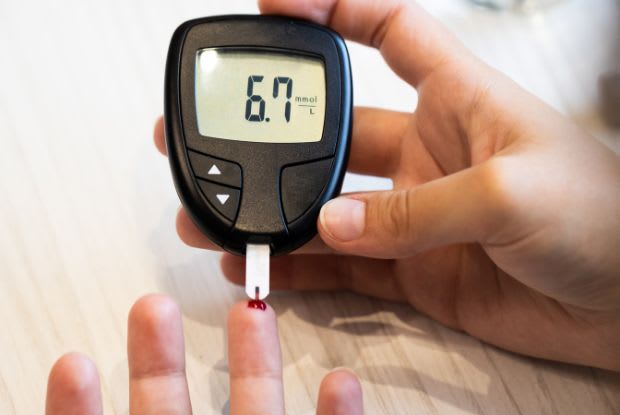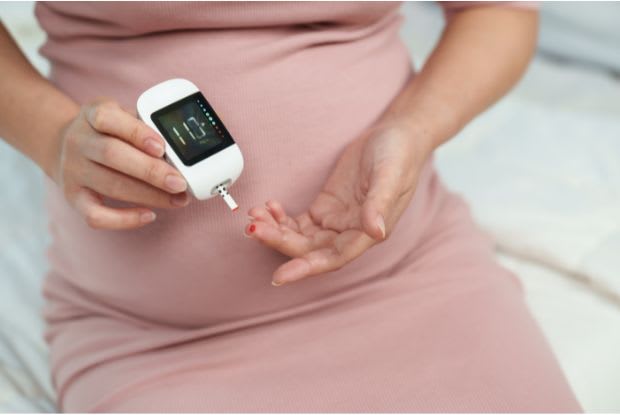Table of Contents
IV. Hypoglycemia (Low Blood Sugar)
V. Risk of Thyroid C-Cell Tumors
VII. Rybelsus Drug Interactions
VIII. Rybelsus Use During Pregnancy
Rybelsus is a game-changing new treatment option for people with type 2 diabetes. As the first oral form of semaglutide, Rybelsus provides an alternative to injectable GLP-1 receptor agonists like Ozempic. [1] This is exciting news for many patients who have struggled with injections.
However, as with any medication, Rybelsus can cause side effects. In most cases, side effects should be temporary and manageable. If you experience any ongoing or concerning side effects while taking Rybelsus, contact your doctor right away.
This article provides an overview of potential Rybelsus side effects, drug interactions, usage during pregnancy, and overdose.
Nausea and Vomiting
It is common to experience nausea or vomiting when you first start taking Rybelsus or increase your dose. This side effect occurs because Rybelsus lowers blood sugar levels and increases insulin in the body, which can upset your stomach. [1]
The good news is that for most people, nausea and vomiting subside within a couple of weeks as your body adjusts to the medication. [1]
There are several things you can do to minimize discomfort:
- Opt for bland, low-fat foods such as crackers, toast, and rice.
- Include foods with a high water content, such as soups and broths.
- Avoid greasy, fried, or sweet foods.
- Avoid lying down after eating.
- Get some fresh air.
- Eat smaller, more frequent meals.
- Stay hydrated. [2]
Diarrhea
Diarrhea is another common side effect that can occur when taking Rybelsus. The medication works by speeding up digestion, which, for some people, results in more frequent bowel movements or diarrhea. [1]
While diarrhea is usually not dangerous, it's important to take steps to avoid dehydration.
- Stay hydrated by drinking plenty of fluids: Take small sips of water regularly throughout the day instead of drinking large amounts at once.
- Use oral rehydration solutions: These can replace electrolytes lost from diarrhea.
- Eat “BRAT” foods: BRAT foods include bananas, rice, applesauce, and toast. These options are gentle on the stomach. [3]
Contact your doctor right away if your diarrhea is severe or does not improve. Diarrhea that lasts more than a couple of days can lead to dehydration and electrolyte imbalance, so seek medical care if you experience dizziness, excessive thirst, dark urine, or other signs of dehydration. [3]
Constipation
Constipation is a common side effect of Rybelsus that you'll want to manage carefully. Nausea and vomiting from Rybelsus can lead to dehydration, which contributes to constipation. [1] And constipation itself can cause additional issues if left unchecked:
- Hemorrhoids
- Stool building up in the colon
- Leakage of liquid stools [4]
The good news is that constipation from Rybelsus tends to be mild. [1] But you'll want to take steps to keep your system moving smoothly.
To help relieve constipation from Rybelsus, try the following:
- Eat insoluble fiber: This adds bulk to your stool and helps food move through your digestive tract more quickly. Good sources of insoluble fiber include wheat bran, vegetables, and whole grains.
- Stay hydrated: Water and liquids help fiber work better to soften stools and make them easier to pass. Drink plenty of water, fruit juices, vegetable juices, and clear soups.
- Try a stool softener: This adds moisture to stools to make them softer and easier to pass. Stool softeners can help you avoid straining during bowel movements, which may lead to hemorrhoids or other issues.
- Try a stimulant laxative: This is another option to provide constipation relief by causing intestinal contractions to help stool move through the colon. However, stimulant laxatives should only be used temporarily and as directed to avoid dependence. [5]
Hypoglycemia (Low Blood Sugar)
Although rare, Rybelsus can potentially lead to hypoglycemia or low blood sugar, which is a serious side effect. [1] If you take certain diabetes medications like insulin or sulfonylureas along with Rybelsus, your risk of hypoglycemia may increase. If your doctor recommends continuing those medications with Rybelsus, they may have you monitor your blood sugar levels more frequently. [1] Some symptoms of low blood sugar include: Rybelsus has a boxed warning for the risk of thyroid C-cell tumors. This is a serious warning from the FDA indicating potential side effects that can be harmful. [1] Animal studies showed that the active ingredient in Rybelsus, semaglutide, caused thyroid tumors in mice and rats. While animal studies don't always predict effects in humans, it's unknown if Rybelsus raises the risk of thyroid cancer in people. [1] Still, as a precaution, your doctor likely won't prescribe Rybelsus if you have: While taking Rybelsus, be aware of potential thyroid cancer symptoms. Contact your doctor right away if you notice any of the following: If you find yourself experiencing nausea while taking Rybelsus, it's natural that you may not feel like drinking as much as usual. Moreover, if vomiting occurs, you may lose more fluids than normal, which can put you at risk of dehydration. This is particularly concerning if you have pre-existing kidney problems, as dehydration can exacerbate these issues. [1] Worsening kidney function can cause symptoms such as: If you experience any of the above symptoms or notice any other concerning side effects, it is crucial that you inform your doctor immediately. They will be able to assess your condition and determine the appropriate course of action. Staying adequately hydrated while taking Rybelsus is essential to minimize the risk of dehydration. To ensure you're drinking enough water, consider following these helpful tips: Rybelsus can interact with other medications you may be taking, so it's important to let your doctor know about all prescription drugs and supplements you use. Certain medications may require extra monitoring or dose adjustments when combined with Rybelsus. The FDA states the following medications may interact with Rybelsus: When it comes to the safety of taking Rybelsus during pregnancy, there is still limited information available. Therefore, if you are pregnant or planning to become pregnant, it is crucial to have an open conversation with your doctor about the potential risks and benefits associated with taking Rybelsus. [1] Managing blood sugar levels during pregnancy is important, as uncontrolled blood sugar levels during pregnancy can harm both you and your developing baby. So, your doctor will likely suggest a treatment other than Rybelsus. [1] Rybelsus has been evaluated in clinical trials at doses up to 40 mg. During these studies, all participants recovered without any complications. [10] However, as with any medication, taking more Rybelsus than prescribed could lead to side effects. The most common side effect seen with Rybelsus overdose is gastrointestinal upset, including nausea. [10] If an overdose does occur, there is no specific antidote for Rybelsus. The only treatment is to provide supportive care based on symptoms. For example, medications and hydration can be used to manage nausea and vomiting. [10] Given Rybelsus' long half-life of about one week, monitoring and treatment may need to continue for an extended period as the excess medication gradually clears from the body. [10] While Rybelsus offers a convenient oral semaglutide option for managing type 2 diabetes, it's important to be aware of potential side effects when taking this medication. Nausea, vomiting, diarrhea, and constipation are common side effects that can occur with Rybelsus use. The drug also carries a boxed warning about the risk of developing thyroid C-cell tumors. Being informed about these potential complications allows you to monitor symptoms and proactively discuss any issues with your healthcare provider. Our comprehensive Rybelsus blog contains more details about usage, side effects, and the latest research on this new diabetes medication. The content in this article is intended for informational purposes only. This website does not provide medical advice. In all circumstances, you should always seek the advice of your physician and/or other qualified health professionals(s) for drug, medical condition, or treatment advice. The content provided on this website is not a substitute for professional medical advice, diagnosis, or treatment.
Risk of Thyroid C-Cell Tumors
Kidney Failure

Rybelsus Drug Interactions
Rybelsus Use During Pregnancy

Rybelsus Overdose
Conclusion
